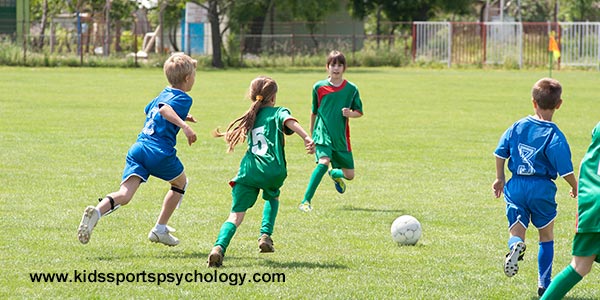
Many Parents are Focused on the Athletes Succeeding
For parents, this usually means attending games and practices as well as helping kids receive the best training possible. Parents often have a large financial commitment in training, equipment, and travel.
Success in sports – however you define success – may be a top priority for both parents and kids. Parents and kids may feel a lot of pressure to succeed and win. This is not all bad for the young athlete; kids learn dedication and commitment through sacrifice in order to reach their goals. Too much emphasis on sports, however, can lead to an imbalance in other areas of life.
Self-Esteem
Psychologists define self-concept as how you view yourself. Self-esteem is whether or not you like what you see. When a person has high self-esteem, they like themselves and they feel happy.
Kids and parents, who evaluate themselves based on their success in sports, tend to experience positive or negative emotions based on the outcome of games. Parents and kids may feel disappointed after a loss, but may be thrilled after an upset. This is attaching their self-esteem to their performance in sports. This can be dangerous because self-esteem is connected to something that cannot be controlled, such as the outcome of the game or expected sports performance. In other words, your basic happiness becomes connected to something that you cannot control.
The best thing, then, is for kids and parents to detach their self-esteem from the athlete’s performance. How can this be done?
Become a Magician at Changing Roles
To achieve more balance in life and detach self-esteem from performance, try becoming a Magician at Changing Roles. Think of your sport as the rabbit in the hat. That role must disappear completely, as the rabbit disappears from the hat. The magician practices, so that the trick is fast and immediate. When parents and kids are changing roles, they need to be able to change roles quickly and completely.
When young athletes are playing sports, they should be completely involved in that role. When they leave their sport, they should be involved in other areas of their lives: school, family or other activities. Remember that the rabbit needs to disappear completely. While it is good to be competitive on the field, being competitive with your sibling is not so charming.
When parents are sports parents, they should involve themselves in that role fully. Support your kids on the field, but when you leave the field, be just a parent. Parents may need to be able to leave the match behind so that they can have something else to discuss at dinner. Your kids are people, first and foremost, who happen to be athletes. Remember you are a professional magician and you don’t want to see that rabbit running around onstage after his disappearing act.
To help parents and kids become a magician at changing roles, they must first define who they are outside of sport. Use only descriptions that apply to personal characteristics that you bring to every aspect of your life. Both parents and kids should make a list of these positive characteristics and review them every day. If you find something you don’t like about yourselves, work to change that aspect.
Parents and kids can help each other to make their magic work. Gently remind each other about being a Magician at changing roles. Anyone can get obsessed with something they are passionate about. Try to be persistent with making the rabbit disappear when the time is appropriate.
Strive for Balance in Life
Parents and kids can define success on their own terms. Find other hobbies, tasks, or goals to occupy time when not being involved in sport. Make a list of five other recreational activities you enjoy doing on free time. Make it a priority to involve yourself in these pursuits when not involved in sport.
Finally, let go of the judgments of others. Parents and kids should know that their immediate family and true friends love them for who they are as a person first. Family and friends do not make judgments based on sports success. For parents, others do not judge your parenting skills based on your kids’ performance.
Related Sports Psychology Articles
- How This Sports Program Helps Kids Excel in Life
- How to Make Youth Sports Fun for All Ages
- Comparison’s Impact on Athletes Confidence
*Subscribe to The Ultimate Sports Parent Podcast
*Subscribe to Peak Performance Sports on Youtube
Download a free sports psychology report to improve your mental game!
Sports Psychology Coaching for Young Athletes

One-on-one mental performance coaching is the fastest and most effective method to improve your athletes’ mental game, boost their performance, and make lasting changes. And as a bonus, parents learn what to say to help young athletes feel confident and thrive in sports. Please call us at 888-742-7225 with your questions.
